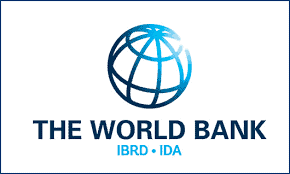The World Bank Group and the Cambridge Centre for Alternative Finance (CCAF), based at the University of Cambridge Judge Business School, have published a joint report that examines a wide range of financing solutions for delivering Off Grid Solar (OGS) electricity to more than 840 million people still living without access to reliable power.
The report, Funding the Sun – New Paradigms for Financing Off-Grid Solar Companies, explores an array of innovative as well as traditional financing solutions for providing electricity access to hundreds of millions of people, predominantly in sub-Saharan Africa. It also offers guidance for companies seeking to deploy their OGS solutions by outlining which financing option best suits their specific approach, the preconditions for each financing option, and the associated opportunities and challenges.
The recent Off-Grid Solar Market Trends Report 2020 by the World Bank Group and GOGLA (the OGS industry association) highlighted that, in order to achieve universal access to electricity by 2030, the OGS sector would need between $6.6 billion and $11 billion in additional funding.
“In the midst of challenging times, traditional financing channels can no longer suffice for covering the needs of the OGS market. This report presents a wide range of alternative technology-enabled funding options that can help companies not only survive in this new reality, but also thrive and catalyze universal access to electricity,” says Rohit Khanna, Manager of the Energy Sector Management Assistance Program (ESMAP) at the World Bank.
The report takes a holistic view of the suite of 17 financing instruments that could be applied to the OGS sector across four core areas: benefits, challenges, necessary market conditions, and policy/regulatory considerations. It provides a comprehensive review of established financing instruments such as grants, venture debt, securitization, convertible notes, mezzanine debt, and development impact bonds, as well as more innovative ways of raising finance such as reward- and equity-based crowdfunding, peer-to-peer lending, online debt-based securities, and government-issued mobile bond.
The study then considers how an array of ‘catalytic tools’ such as match funding, first-loss guarantee, tax incentives, and collateral buy-back facilities can further catalyze funding for the OGS sector. Finally, the report explores how blockchain technology and tokenization might contribute to the emergence of distributed ledger technology based OGS financing ecosystems.
“This report elucidates the potential role of financial innovation in widening energy access and achieving sustainability,” says Bryan Zhang, Executive Director, CCAF. “It also provides a practical roadmap and an array of options for entrepreneurs, firms and financiers navigating capital raises for off-grid solar in a testing and increasingly complex environment.”
About the CCAF. The Cambridge Centre for Alternative Finance (CCAF) is an international interdisciplinary academic research institute dedicated to the study of alternative finance, which includes financial channels and instruments that emerge outside of the traditional financial system (i.e. regulated banks and capital markets). Examples of alternative channels are online ‘marketplaces’ such as equity- and reward-based crowdfunding, peer-to-peer consumer/business lending, and third-party payment platforms. Alternative instruments include SME mini-bonds, private placements and other ‘shadow banking’ mechanisms, social impact bonds and community shares used by non-profit enterprises, and alternative currencies such as Bitcoin.

